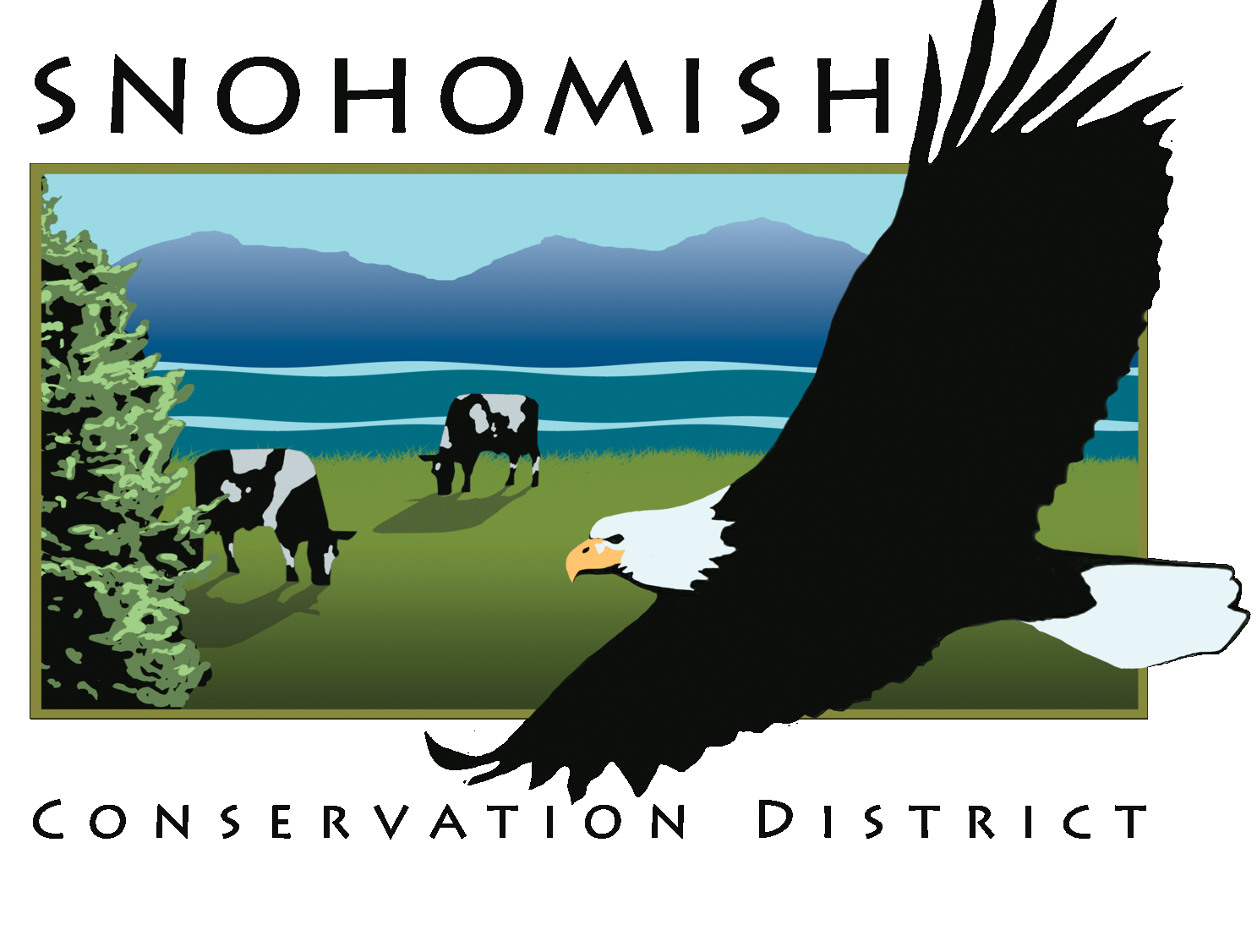Working Together for Clean Water in Edmonds
/Keeping stormwater clean in urban spaces isn’t easy. When rain hits the ground and travels across surfaces like streets and parking lots, it picks up pollutants along the way before heading down a storm drain and into our waterways. But there are nature-based solutions, commonly referred to as Green Stormwater Infrastructure, that collect, slow, and filter stormwater.
At Snohomish Conservation District, we utilize several green infrastructure tools to support clean water. In 2023, our Community Conservation Crew installed a 380-foot roadside bioswale in the city of Edmonds. Bioswales, which are often located alongside roads or parking lots, help manage and filter stormwater in areas where there is abundant runoff from nearby pavement.
District staff survey the project site. CAD Technician Samantha Rudoff (right) holds a survey data receiver and rod used to collect data points and elevations to inform rain garden design.
An excavator is used to dig a trench deep enough for the 380-foot roadside bioswale.
This bioswale (pictured unvegetated but was eventually filled with special plants) will collect and filter more water than a typical ditch or storm drain.
Bioswales are constructed by excavating a ditch, filling it with porous soils, and planting it with specially selected vegetation. The shape and soil composition of a bioswale allows it to collect more water than a ditch or storm drain and gives the collected water time to be filtered naturally as it seeps slowly into the earth below. The plants in bioswales also slow water drainage and help filter out pollutants such as 6PPD-quinone, a toxin contained in tire dust that is deadly to salmon.
The District’s Community Conservation Crew planted the bioswale with a variety of native species, adding aesthetic value to the neighborhood. These plants also serve as habitat for pollinators and other native wildlife, and create an opportunity for residents to spot birds, bees, and butterflies.
The 2023 bioswale project in Edmonds compliments a similar one installed by the District in 2020 just a block away, and we will be constructing another bioswale in 2024. Together, these bioswales vastly improve the neighborhood’s stormwater filtration. This is excellent news for the health of Puget Sound and the many species that live there. The District is proud to contribute to clean stormwater throughout the region.

